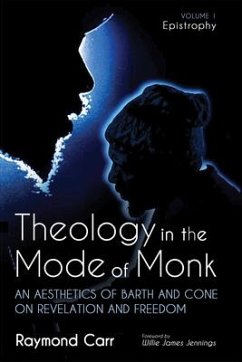This captivating study engages two of the most influential theologians of the twentieth century: Karl Barth, the Swiss Protestant theologian, who constructed his theology "from above" and engaged the powers in the background of Nazi Germany, and James H. Cone, the father of Black Theology in America, who constructed his theology "from below" and confronted white racism--the most intractable issue in America's history. In this three-volume project, Carr employs the aesthetic thinking of the jazz legend Thelonious Monk to reconceptualize, restructure, and advance the theologies of Barth and Cone. This first volume appeals to the Bebop tune "Epistrophy" as the analogical framework for (re)conceptualizing the historical form and hermeneutical backgrounds of Karl Barth and James H. Cone. Monk's mode of musical thinking establishes the aesthetic theological architecture Carr uses to reiterate and reimagine the revolutionary theological contributions of Barth and Cone.

![Thelonious Monk: Early Gems [With CD (Audio)] Thelonious Monk: Early Gems [With CD (Audio)]](https://bilder.buecher.de/produkte/34/34390/34390381m.jpg)